Naturally from WikipaediaIn 2003, the Ontario Liberal Party, led by Dalton McGuinty, won the provincial election and on April 5, 2004, provincial Minister of Natural Resources David Ramsay and Minister of the Environment Leona Dombrowsky introduced legislation which revoked all certificates and permits related to the Adams Mine proposal.
This had the effect of permanently killing the 1996 plan.
Charlie Angus, a local musician and author, was one of the community leaders who organized the campaign against the Adams Mine proposal. He subsequently ran for political office, and was elected to Parliament in the 2004 federal election.
Toronto continues to export its trash to Michigan, causing a great deal of controversy for southern Ontario and Michigan communities which endure the transport of waste through their communities. Critics continue to point out that Toronto's exporting plan avoids forcing the city and region to come to terms with the waste its citizens generate, however there appears to be little political will to reduce consumption and bring about a regional waste management strategy which will avoid the necessity to export to distant landfills. The shipping of garbage to Michigan briefly became an issue in the United States presidential election, 2004 when John Kerry, on a campaign stop in Michigan, promised to ban the import of Canadian garbage if he was elected. In September, 2005, the Michigan state legislature voted almost unanimously against accepting Toronto's garbage.
The debate was finally put to rest on June 17th, 2004 when the Adams Mine Lake Act was passed by a vote of 63 to 18. The Act, signed into law by the Lieutenant Governor, made the mine property strictly off-limits for waste storage. The Act also revoked all existing approvals pertaining to the project. The agreement went a step further and prohbited any legal action to be taken against the Ontario Government as a result of the legislation. This came as bad news to the owner of the Adams Mine property. He was to be compensated for the purchase of the property, associated studies and tests, legal services, property taxes and government approval costs.
Today the mine remains very much the way it was left. Equipment fills the buildings, manuals and books sit on shelves and office equipment is still in place. From http://www.ontarioabandonedplaces.com/adams/adamsmine.asp What are the "Top Ten" Concerns?
1. Contaminated Groundwater
2. Contaminated Surface Water
3. Bad Design
4. Toxins will bioaccumulate.
5. Negative affects on other businesses, such as tourism and farming.
6. Publicly unacceptable.
7. Undermines waste reduction and recycling.
8. Long term monitoring.
9. Ignores Algonquin land rights.
10. Bad land use.
(plus many others under these broad categories)
from http://www.cela.ca/newsevents/backgrounder/background-proposal-turn-adams-mine-garbage-dump Of interest to Community Groups who are addressing projects of this type:
What was done to stop the Adams Mine landfill proposal near Kirkland Lake
The rules governing landfills are strong enough to prevent bad projects, “but the rules, for whatever reason, aren't interpreted correctly.” (Vanhof) “It's your job to make them prove it,”
“You want to make it safe and if stopping it is the only way to make it safe, so be it.” Note: Public opposition killed the first Adams Mine proposal, but the plan was modified and the site was eventually approved, despite continued public outcry. Opponents spent a year monitoring the mine to disprove the landfill proponents assertions in the second proposal, but government officials weren't interested in what they had to say. “The Ministry (of Environment) didn't want to hear anything, basically told us to go away,” The tide turned when landfill opponents in the business community hired an independent expert to conduct a review and critical analysis of hydrogeological (groundwater) investigations related to the proposal.The results caused the decision to approve the site to be reversed so make a stand on groundwater safety.
There were more than 20 groups involved in the Adams Mine fight, from radical environmentalists opposed to the landfill on principle to business, First Nations and seniors groups so it's important to rally as many groups as possible in fighting a landfill. But it's equally important that the groups maintain separate identities, which was key when the business group hired an independent expert in the Adams Mine situation. “Someone who is opposed (to a landfill) in principle is going to have a hard time getting someone to go to bat for them,”.
Having the right experts on board and having the people behind you is key, pointing out that a lack of significant public opposition is taken as tacit approval by landfill proponents.“The companies behind these things gauge the difficulty (of receiving site approval) by how much people are opposed.” When it comes to getting politicians involved in fighting a proposal, elected officials are the voice of the people.“They have to be pushed, all of them,”
Opponents have to “push all the right buttons, if you're going to make it safe.” from http://www.woodstocksentinelreview.com/2013/09/25/oxford-residents-get-tips-on-fighting-landfill-proposal


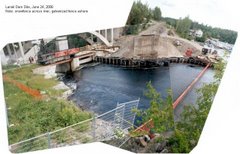


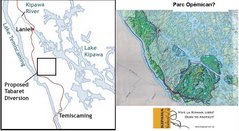

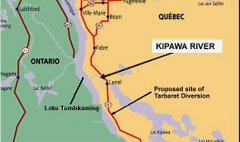

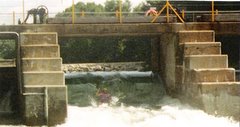





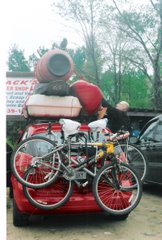

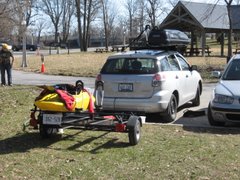

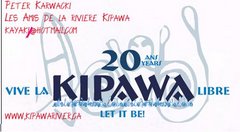
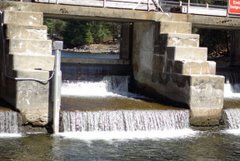


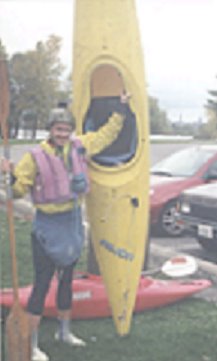



No comments:
Post a Comment